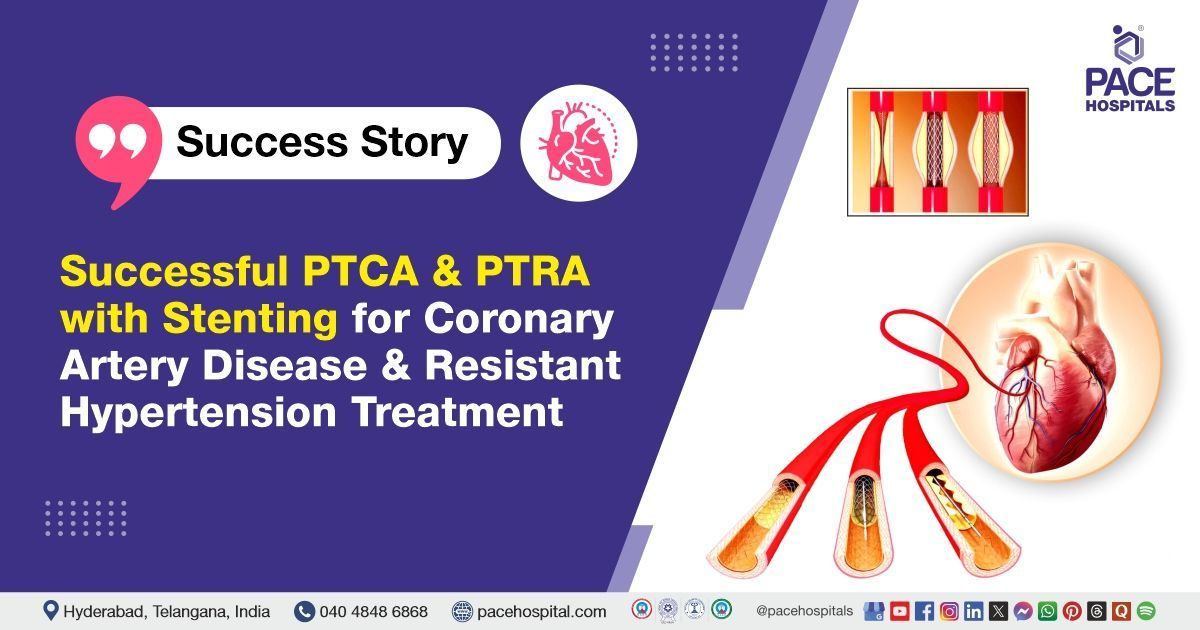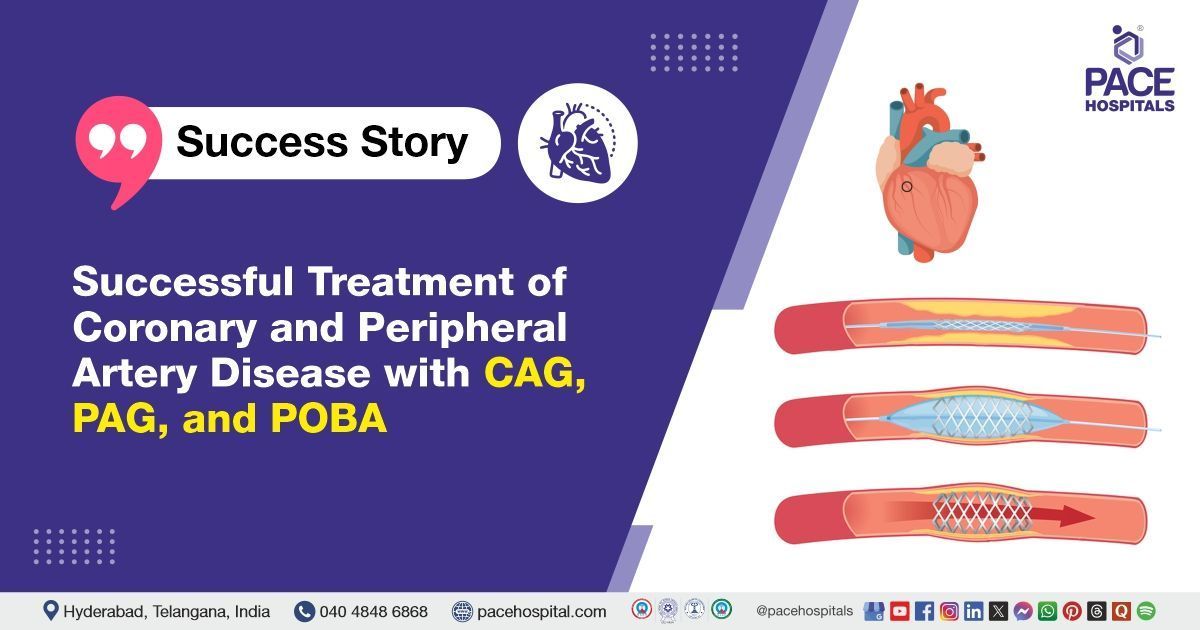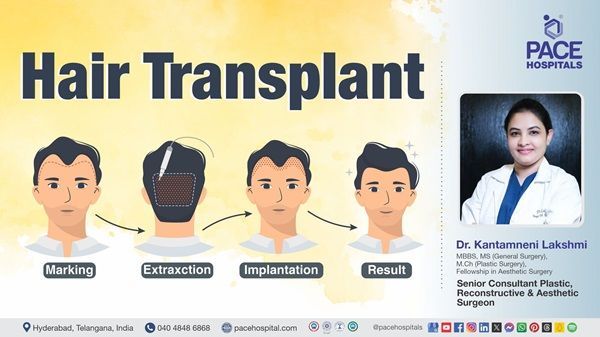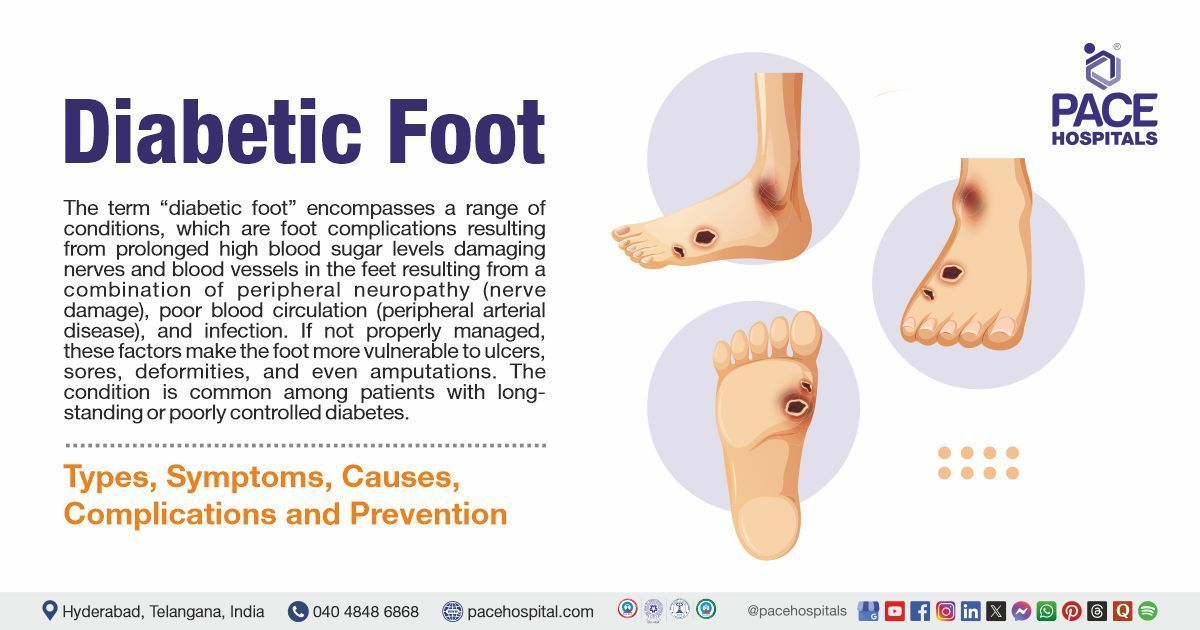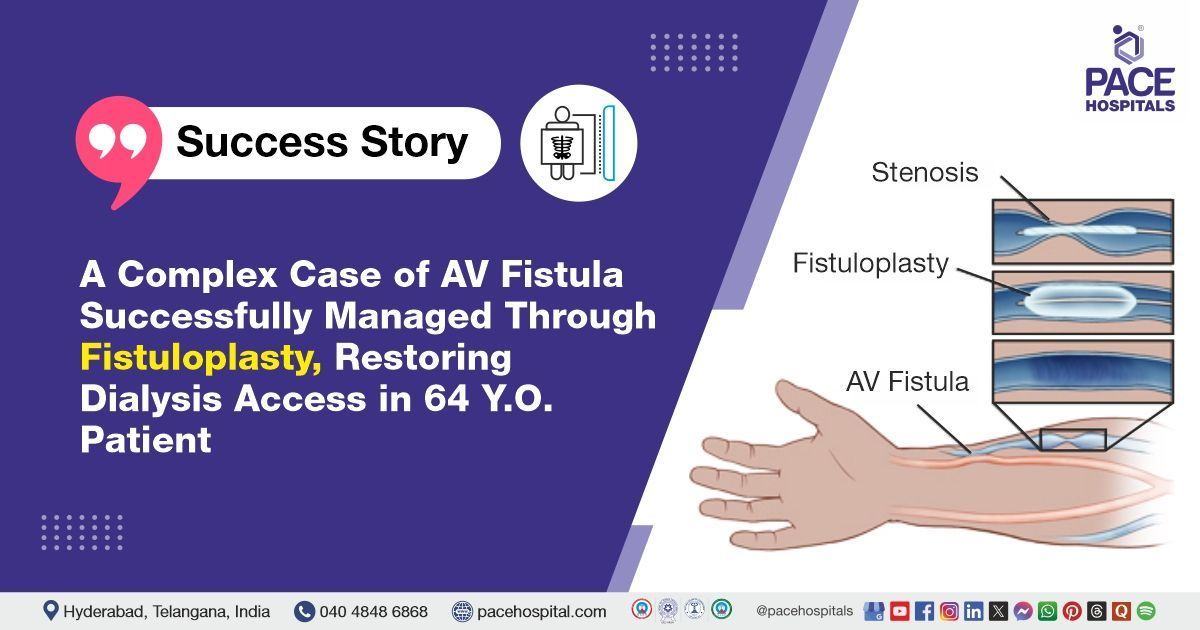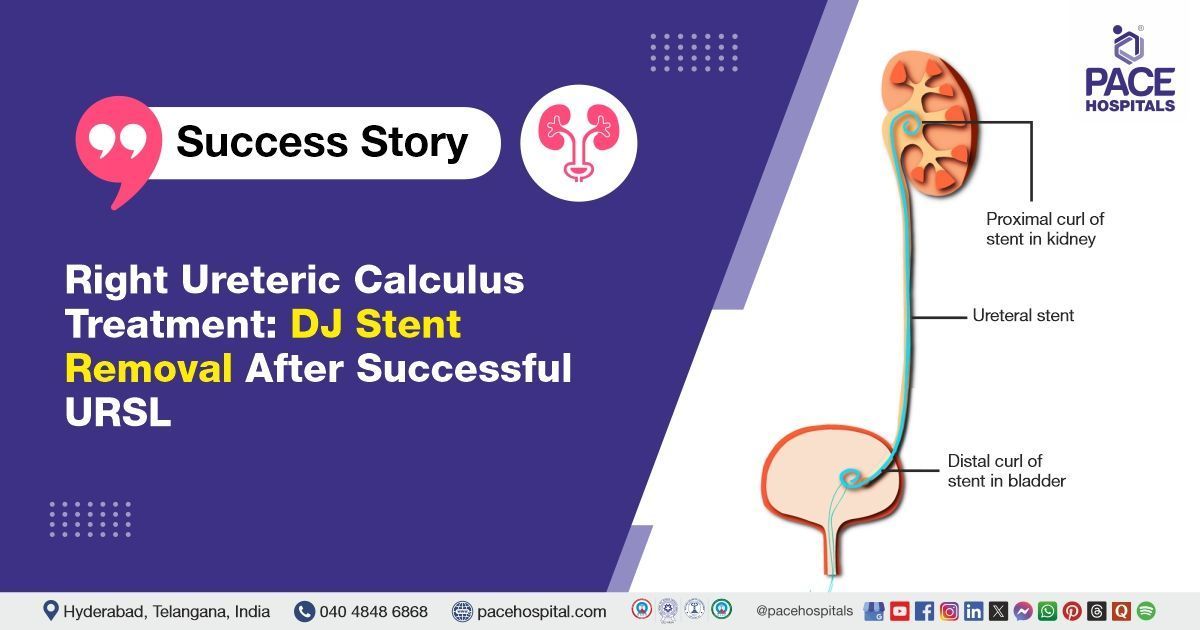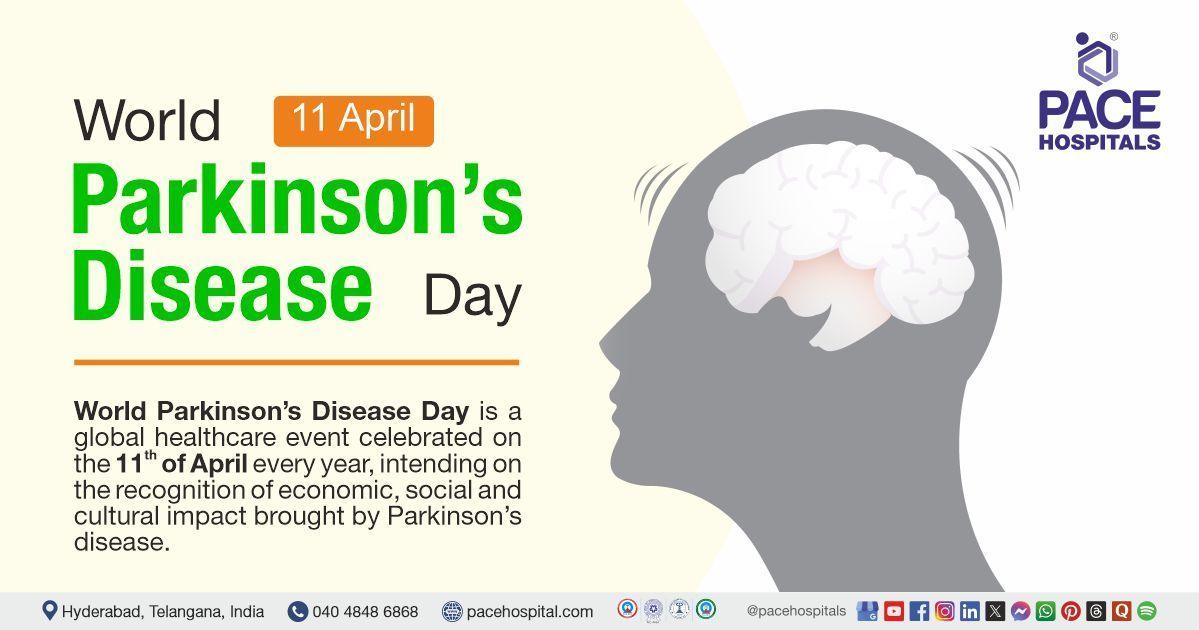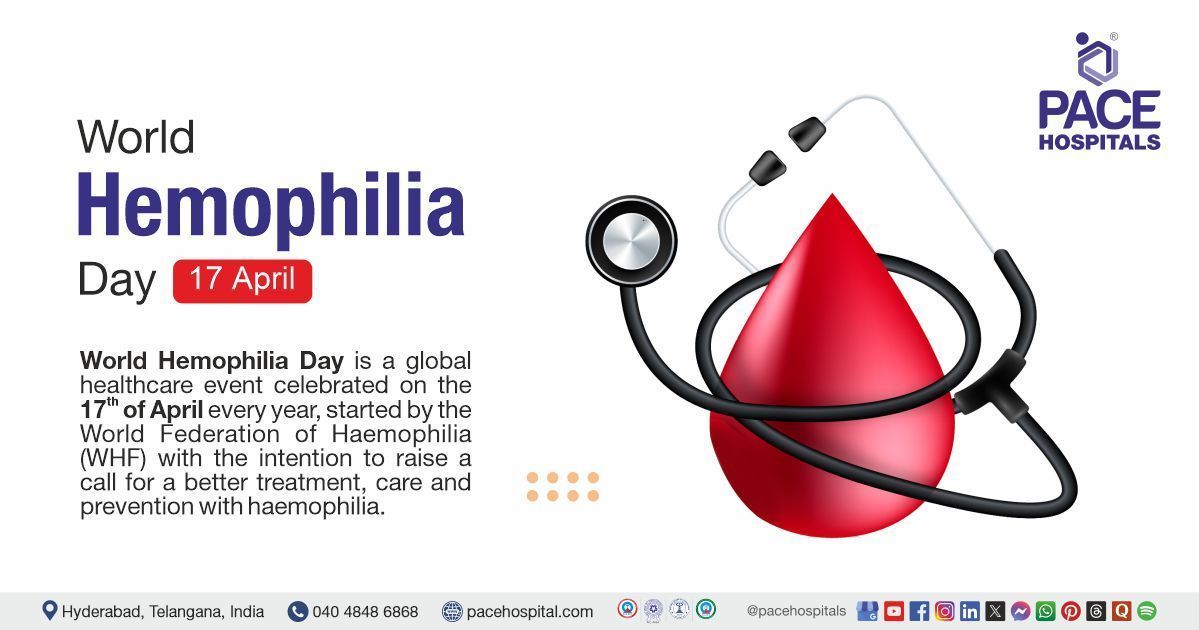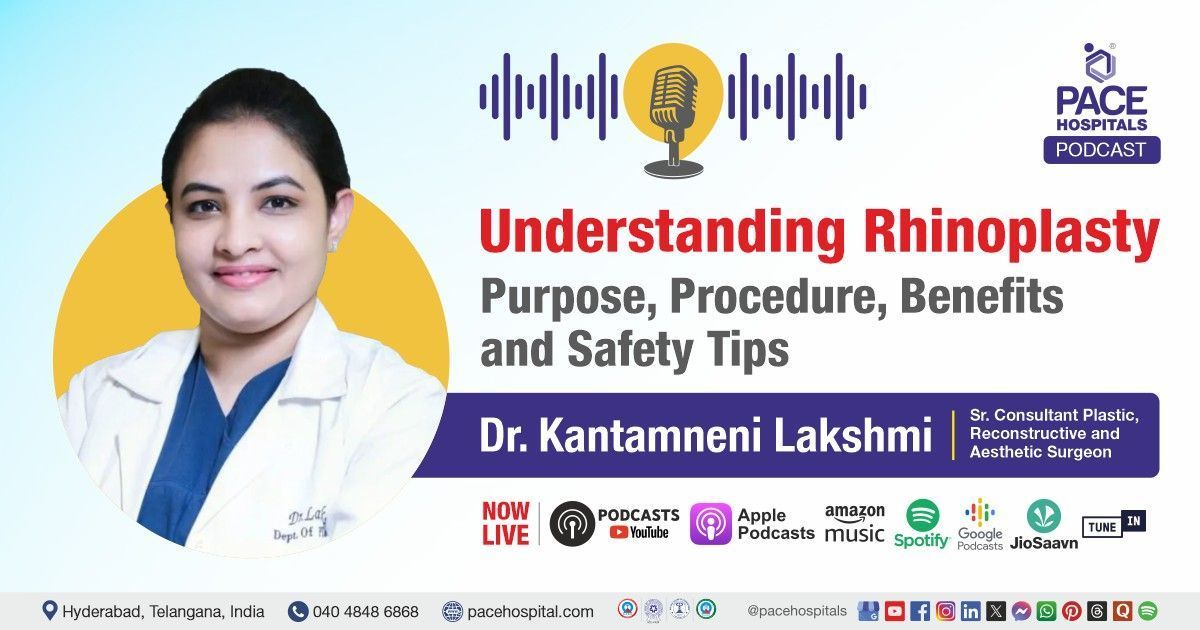Successful PTCA & PTRA with Stenting for CAD & Resistant Hypertension Treatment
PACE Hospitals’ Cardiology Team Successfully Performs
CAG, RAG, PTCA, and PTRA with Stenting to Manage Coronary Artery Disease (CAD) and Resistant Hypertension, Mitigating Future Risks.
Chief complaints
An 86-year-old female patient with complaints of dizziness for two weeks presented to the consultant cardiologist, Dr. Sashi Vardhan Janjirala, at
PACE Hospitals, Hitech City, Hyderabad.
Medical history
Upon further investigation, it was understood that the patient is a known case of heart failure with preserved ejection fraction (HFpEF) and acute decompensated heart failure (ADHF). This condition occurs when a patient exhibits signs and symptoms of heart failure but maintains a preserved ejection fraction. The patient had a history of several medical conditions, including bronchial asthma,
chronic kidney disease (CKD), and a previous cerebrovascular accident (CVA). Additionally, there was no known history of food or drug allergies.
Diagnosis
Laboratory findings showed all parameters were within normal limits. Based on the detailed investigations, the patient was diagnosed with CAD with resistant Hypertension (HTN), where coronary artery disease (CAD) indicates the presence of blockages or narrowing of the coronary arteries, which can lead to reduced blood flow to the heart muscle, potentially causing chest pain or heart attacks. Resistant Hypertension (HTN) suggests that the patient's high blood pressure is difficult to control, despite taking multiple medications.
The patient had previously undergone Percutaneous Transluminal Coronary Angioplasty (PTCA) to the Left Anterior Descending Artery (LAD) and Percutaneous Transluminal Renal Angioplasty (PTRA) to treat a narrowing in the left renal artery.
In addition, the diagnosis includes Heart Failure with Preserved Ejection Fraction (HFpEF). In this condition, the heart is unable to relax and fill properly, resulting in fluid buildup. At the same time, Acute Decompensated Heart Failure (ADHF) is a sudden worsening of heart failure symptoms, causing difficulty in breathing and fluid retention.
Treatment
After consulting with cardiology expert Dr Seshi Vardhan Janjirala, it was concluded that a combination of interventions would be the most effective approach to address the patient’s coronary and renal artery issues. The goal was to improve blood flow and manage the patient’s resistant hypertension while carefully minimizing risks and ensuring long-term stability.
Given the diagnosis of coronary artery disease along with multiple comorbidities, the decision was made to perform targeted procedures to treat both heart and kidney issues.
First, Coronary Angiography (CAG) and Renal Angiography (RAG) were carried out to assess the blockages in the coronary arteries and the narrowing of the left renal artery. Following these diagnostic procedures, Percutaneous Transluminal Coronary Angioplasty (PTCA) was performed to open the blocked Left Anterior Descending (LAD) artery using a balloon, followed by the placement of a stent to maintain proper blood flow. Similarly, Percutaneous Transluminal Renal Angioplasty (PTRA) was done to widen the narrowed left renal artery, and a stent was placed to ensure continuous circulation.
The cardiologist performed PTCA and PTRA again because the patient may have experienced new blockages or restenosis (re-narrowing) of the previously treated arteries, which could have compromised blood flow. Given the patient’s ongoing hypertension and coronary artery disease, additional interventions were necessary to ensure proper circulation and manage the patient’s condition effectively.
These minimally invasive procedures were performed through small incisions, avoiding the need for open surgery. The interventions successfully restored blood flow to both the heart and kidneys, aiding in managing the patient’s hypertension and reducing the risk of further complications, ultimately stabilizing the patient’s condition and improving long-term health outcomes.
The patient likely consulted the ENT doctor due to issues related to vertigo or balance disorders, as indicated by the prescription of medications like Spinfree (Flunarizine) and Vertin (Betahistine), commonly used to treat dizziness and vertigo.
Additionally, the Dewax ear drops suggest that the patient may have had an ear wax buildup, which could contribute to symptoms such as hearing loss or discomfort, prompting the consultation.
Discharge notes
The patient was discharged in a hemodynamically stable condition. Statins, Anti-platelet drugs, Betablockers, Muscle relaxants, Antihistamines, and Calcium channel blockers were prescribed to the patient as discharge medications.
Post discharge follow up
The patient was also instructed to contact PACE Hospitals in case of fever, abdominal pain, or vomiting. After 1 week, the patient was asked to follow up with Dr. Seshi Vardhan Janjirala in the outpatient department with a histopathology (HPE) report and Dr Shwetha Anand after three days in OPD with a prior appointment.
Request an appointment
Fill in the appointment form or call us instantly to book a confirmed appointment with our super specialist at 04048486868
Appointment request - health articles
Thank you for contacting us. We will get back to you as soon as possible. Kindly save these contact details in your contacts to receive calls and messages:-
Appointment Desk: 04048486868
Whatsapp: 8977889778
Regards,
Pace Hospitals
Hitech City and Madinaguda
Hyderabad, Telangana, India.
Oops, there was an error sending your message. Please try again later. We will get back to you as soon as possible. Kindly save these contact details in your contacts to receive calls and messages:-
Appointment Desk: 04048486868
Whatsapp: 8977889778
Regards,
Pace Hospitals
Hitech City and Madinaguda
Hyderabad, Telangana, India.
Our Locations – Find the Best Hospital Near You
Metro Pillar Number C1772, Beside Avasa Hotel, Hitech City Road, Near HITEC City Metro Station, Hyderabad, Telangana, India.
Mythri Nagar, Beside South India Shopping Mall, Hafeezpet, Madeenaguda, Hyderabad, Telangana, India.
040 4848 6868
Payment in advance for treatment at PACE Hospitals, Hyderabad, Telangana, India (Pay in INR ₹)
For Bank Transfer:-
- Bank Name: HDFC
Company Name: Pace Hospitals
A/c No.50200028705218
IFSC Code: HDFC0000545 - Bank Name: STATE BANK OF INDIA
Company Name: Pace Hospitals
A/c No.62206858997
IFSC Code: SBIN0020299
Scan QR Code by Any Payment App (GPay, Paytm, Phonepe, BHIM, Bank Apps, Amazon, Airtel, Truecaller, Idea, Whatsapp etc).

CONTACT US
Call: +914048486868
WhatsApp: +918977889778
Email: info@pacehospitals.in
FOLLOW US
SUBSCRIBE
Subscribe to our newsletter and stay updated with the latest health information.
Subscribe to PACE Hospitals' Public Newsletter
Thank you for subscribing to PACE Hospitals' Newsletter. Stay updated with the latest health information.
Oops, there was an error. Please try again submitting your details.
ABOUT US
QUICK LINKS
Disclaimer
General information on healthcare issues is made available by PACE Hospitals through this website (www.pacehospital.com), as well as its other websites and branded social media pages. The text, videos, illustrations, photographs, quoted information, and other materials found on these websites (here by collectively referred to as "Content") are offered for informational purposes only and is neither exhaustive nor complete. Prior to forming a decision in regard to your health, consult your doctor or any another healthcare professional. PACE Hospitals does not have an obligation to update or modify the "Content" or to explain or resolve any inconsistencies therein.
The "Content" from the website of PACE Hospitals or from its branded social media pages might include any adult explicit "Content" which is deemed exclusively medical or health-related and not otherwise. Publishing material or making references to specific sources, such as to any particular therapies, goods, drugs, practises, doctors, nurses, other healthcare professionals, diagnoses or procedures is done purely for informational purposes and does not reflect any endorsement by PACE Hospitals – your trusted hospital near me.

